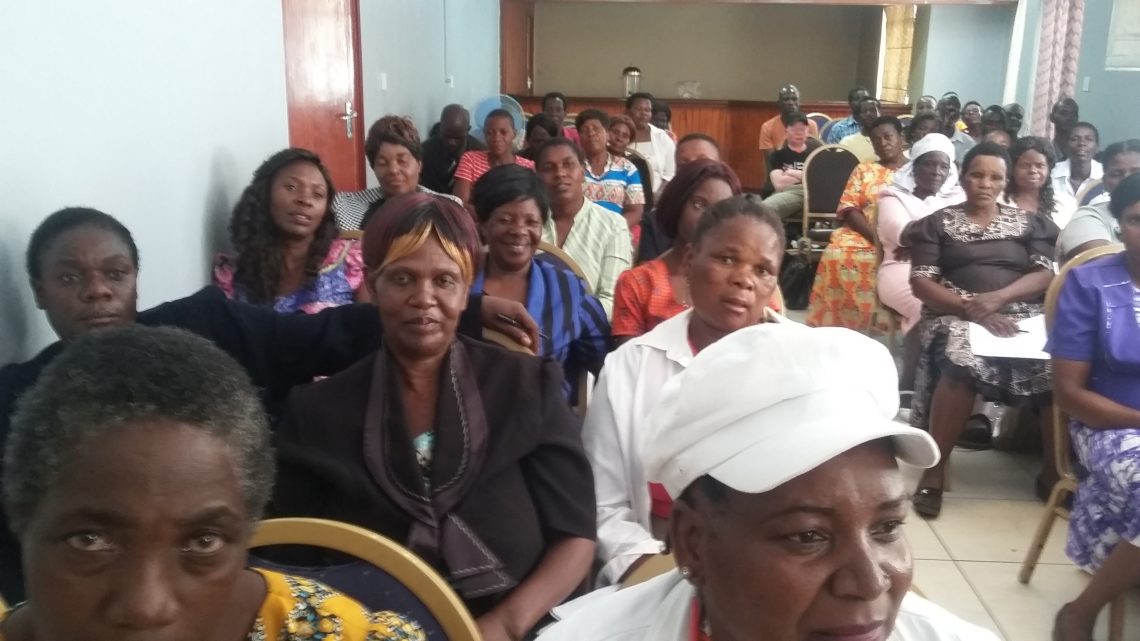By Byron Mutingwende
Mazvita Jacob (not real name) relives the emotional experiences of the day she was raped by her uncle last year when she was 17 years old. When left alone, she cries and says she sees visions of the perpetrator coming to abuse her all over again.
Her auntie Patience says Mazvita is now avoiding contact with many people because of the low self-esteem that started after the attack.
“Each time she sees her relatives and friends, she fears and suspects that they might be thinking she was responsible for attracting her uncle until he raped her. Of late she suffers occasional bouts of anger and depression,” Patience said.
Phephisiwe Muranda, the Outreach Officer of the Adult Rape Clinic, during a capacity building workshop with behaviour change facilitators (BCFs) working under the Zimbabwe Community Health Intervention Research (ZICHIRe) project, said rape has negative physical, psychological and social effects.
“Rape may lead to bruises, lacerations, broken hymen and fistula. Victims may be assisted with post exposure prophylaxis (PEP) within 72 hours in order to reduce the chances of contracting HIV. To prevent sexually transmitted infections, victims are also given antibiotics for prevention,” Muranda said.
She said the psychological lapses experienced by Mazvita were common among victims and highlighted other examples like anger and depression; sexual dysfunction; lack of concentration and forgetfulness as well as thoughts of suicide, among others.
Christine Gonese, the ZICHIRe Programme Manager of the Demand Generation Project social support is vital for vital for recovery from rape.
“Society is grappling with stigma and discrimination on victims of rape. While the decision to disclose the experience lies with the survivor, support networks allow survivors to obtain the assistance necessary for recovery. Through our behaviour change programmes we do referrals to the victims to get further assistance in instances where our interventions may be insufficient to address all the needs,” Gonese said.
Eunice Chigiji, a ZICHIRe behaviour change facilitator from Chitungwiza underscored the importance of open lines of communication between parents and their children.
“Through the parent-to-child-communication project, we engage girls to listen to their experiences. We in turn teach them what’s contained in our behaviour change manuals called Ngatikurukure/Let’s Chat. In those meetings, we discourage early marriages, encourage them to go for HIV testing and counselling and embark on conversations on sexual reproductive health,” Chigiji said.
Caroline Mhindu and Vincent Guhu hailed the ZICHIRe home visit scheme, which is an integrated support programme on HIV, sexual reproductive health and gender-based violence.
“This project seeks to create demand generation in the community to influence people to girls and women to seek services like cervical cancer screening, family planning, HIV testing and counselling and anti-retroviral therapy,” they said.
However, there is a plethora of challenges experienced during the home visits. BCFs stated that condoms are in short supply whilst demand is very high. There is therefore a possibility of new infections.
Another challenge mentioned was that in areas such as Chitungwiza, Mufakose and Glenview there is no cervical cancer screening and it is difficult for people to go to far away places to seek health services.
“People want bus fares to go for treatment. They don’t have money for cervical cancer treatment. In some areas where condoms are being distributed especially hotspots the condoms are being sold. There is need for identification material. BCFs want to know more about Fistula. Some people are refusing to disclose their names when BCFS do home visits and request rewards for our participation in the home visit sessions,” said a participant at a workshop in Harare.
